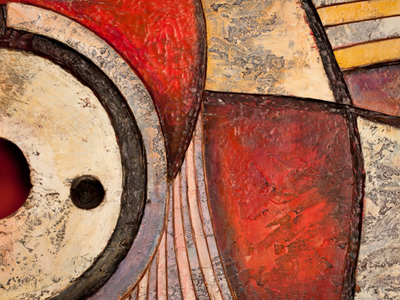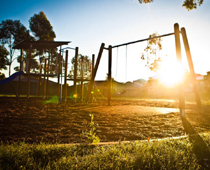
They're eager to see their artwork in the exhibition over there.
Their, They're and There
Welcome to the KS2 English quiz where we tackle the tricky trio: 'their', 'they're', and 'there'! These words sound the same but have different jobs.
'Their' is like a secret code for saying something belongs to 'them'. 'They're' is a cool shortcut for 'they are'. And 'there' is like a pointing finger, showing a place or spot.
Mixing them up? No worries! Play this quiz, and you'll be a 'their', 'they're', and 'there' expert in no time!
Boost Your Child's Confidence with QuizzesTo see a larger image, click on the picture.
1.
Read the statement before choosing the answer which uses the correct version of 'their', 'they're' or 'there'.
Nicole and Anna are going to take the dog for a walk.
Nicole and Anna are going to take the dog for a walk.
They're going to take their dog for a walk.
There going to take they're dog for a walk.
The're going to take there dog for a walk.
Their going to take they're dog for a walk.
They are (they're) going to take their (possessive) dog.
2.
Read the statement before choosing the answer which uses the correct version of 'their', 'they're' or 'there'.
Joe and Harry have decided to visit the new school.
Joe and Harry have decided to visit the new school.
Joe and Harry have decided to visit there new school.
Joe and Harry have decided to visit their new school.
Joe and Harry have decided to visit theyre new school.
Joe and Harry have decided to visit they're new school.
'Their' (possessive) new school - it 'belongs' to them.
3.
Read the statement before choosing the answer which uses the correct version of 'their', 'they're' or 'there'.
You will find the pirates' treasure chest buried under the tree.
You will find the pirates' treasure chest buried under the tree.
You will find they're treasure buried their.
You will find there treasure buried their.
You will find their treasure buried there.
You will find their treasure buried they're.
Their (possessive) treasure - it belongs to the pirates; buried there ('under the tree' is a place).
4.
5.
Read the statement before choosing the answer which uses the correct version of 'their', 'they're' or 'there'.
It was already crowded in the restaurant when another large group arrived.
It was already crowded in the restaurant when another large group arrived.
It was already crowded their when another large group arrived.
It was already crowded they're when another large group arrived.
It was already crowded there when another large group arrived.
It was already crowded the're when another large group arrived.
'There' - the restaurant is a place.
6.
Read the statement before choosing the answer which uses the correct version of 'their', 'they're' or 'there'.
The builders will bring tools when they are ready.
The builders will bring tools when they are ready.
The builders will bring there tools when their ready.
The builders will bring their tools when they're ready.
The builders will bring they're tools when their ready.
The builders will bring their tools when there ready.
Their (possessive) tools - they belong to the builders; they're (they are) ready.
7.
Read the statement before choosing the answer which uses the correct version of 'their', 'they're' or 'there'.
The football fans cheered loudly for the team.
The football fans cheered loudly for the team.
The football fans cheered loudly for there team.
The football fans cheered loudly for the're team.
The football fans cheered loudly for they're team.
The football fans cheered loudly for their team.
'Their' (possessive) team - it 'belongs' to the fans.
8.
Read the statement before choosing the answer which uses the correct version of 'their', 'they're' or 'there'.
Joe and Harry's new school is near the leisure centre.
Joe and Harry's new school is near the leisure centre.
There new school is they're.
They're new school is their.
Their new school is they're.
Their new school is there.
Their (possessive) school is there ('near the leisure centre' is a place).
9.
Read the statement before choosing the answer which uses the correct version of 'their', 'they're' or 'there'.
The children thought that no one would be in the park later that afternoon.
The children thought that no one would be in the park later that afternoon.
The children thought that no one would be there.
The children thought that no one would be their.
The children thought that no one would be theyr'e.
The children thought that no one would be they're.
'There' - the park is a place.
10.
Read the statement before choosing the answer which uses the correct version of 'their', 'they're' or 'there'.
No more questions will be allowed!
No more questions will be allowed!
Their will be no more questions.
They're will be no more questions.
There will be no more questions.
The're will be no more questions.
In this sentence, 'there' means 'here and now, in this place'.
**Unlimited Quizzes Await You! 🚀**
Hey there, quiz champ! 🌟 You've already tackled today's free questions.
Ready for more?
Ready for more?
🔓 Unlock UNLIMITED Quizzes and challenge yourself every day. But that's
not all...
not all...
🔥 As a Subscriber you can join our thrilling "Daily Streak" against other
quizzers. Try to win a coveted spot on our Hall of Fame Page.
quizzers. Try to win a coveted spot on our Hall of Fame Page.
Don't miss out! Join us now and keep the fun rolling. 🎉
**Unlimited Quizzes Await You! 🚀**
Hey there, quiz champ! 🌟 You've already tackled today's free questions. Ready for more?
🔓 Unlock UNLIMITED Quizzes and challenge yourself every day. But that's not all...
🔥 As a Subscriber you can join our thrilling "Daily Streak" against other quizzers. Try to win a coveted spot on our Hall of Fame Page.
Don't miss out! Join us now and keep the fun rolling. 🎉

















